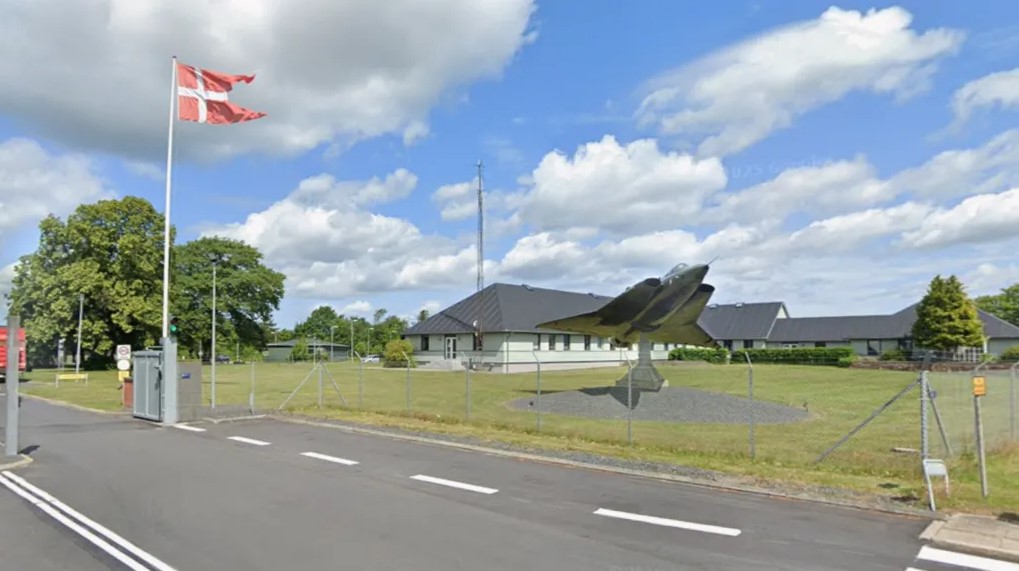Denmark Bans Civilian Drone Flights Ahead of EU Summit Amid Rising Security Concerns
Mysterious drone sightings over Danish airports and military bases fuel suspicions of hybrid attacks amid wider European security concerns

ERBIL (Kurdistan24) — Denmark announced on Sunday that it will ban all civilian drone flights nationwide this week as Copenhagen prepares to host a high-level European Union summit, citing heightened security concerns amid a wave of mysterious drone sightings across the country.
The Danish Transport Ministry said the measure would be in place from Monday through Friday as EU leaders convene in the Danish capital on Wednesday and Thursday.
“Denmark will host EU leaders in the coming week, where we will have extra focus on security. Therefore, from Monday to Friday, we will close the Danish airspace to all civilian drone flights,” the ministry said in a statement.
Since September 22, Denmark has reported a string of unidentified drone flights, including incursions over airports and military installations, leading to temporary airport closures.
Justice Minister Peter Hummelgaard described the incidents as a potential “hybrid attack” aimed at creating fear and said the government was acquiring new capabilities to detect and take down drones.
“We are not ruling out anything at this time in terms of who is behind it,” Hummelgaard told reporters.
Over the weekend, the Danish Armed Forces confirmed drones had again been observed at several military locations for the second consecutive night, though details on the incidents or responses were not disclosed.
Police also reported sightings near Karup military base, Denmark’s largest, which houses helicopter units, airspace surveillance, and a flight school. Similar drone activity has been reported in neighboring Norway.
The spate of sightings has fueled speculation of Russian involvement, though Moscow has denied the allegations. Danish authorities have so far described the actor behind the flights as “professional.”
NATO, meanwhile, has stepped up its vigilance in the Baltic region following a series of unauthorized Russian drone and aircraft incursions into NATO airspace, including incidents in Poland and Estonia where drones were shot down and fighter jets reportedly entered sovereign airspace.
A NATO spokesperson said the alliance has reinforced monitoring and defensive measures in the Baltic, deploying multiple intelligence and surveillance assets as well as at least one air-defense frigate.
These steps underscore broader security concerns across Europe as Copenhagen prepares to host EU leaders for two days of talks, with Russian activity looming over discussions on regional stability and collective defense.
The summit in Copenhagen is expected to dedicate significant attention to Europe’s security environment, with the recent drone intrusions highlighting the vulnerability of civilian and military infrastructure to hybrid threats.
Military experts say the incidents will likely push EU leaders to strengthen coordination on airspace defense, accelerate joint investments in drone-detection technology, and deepen alignment with NATO to counter what NATO members call "Russian provocations."
Against the backdrop of rising tensions with Moscow, the EU gathering could mark a step toward greater European defense integration and a more unified response to emerging security challenges.
At the same time, Ukraine’s ongoing war remains central to EU deliberations, with leaders expected to reaffirm support for Kyiv while weighing additional sanctions on Moscow.
The drone incidents over Denmark and NATO’s eastern flank are seen as part of a wider Russian strategy to test allied resolve, making deterrence and long-term security guarantees for Ukraine a priority item on the agenda.
Copenhagen’s summit will thus serve as both a platform for solidarity with Ukraine and a demonstration of Europe’s determination to confront Russia’s hybrid tactics.
EU leaders are likely to conclude the summit with pledges of fresh financial and military aid for Ukraine, expanded sanctions targeting Russia’s drone supply chains, and commitments to enhance Europe’s collective air defense capabilities—signaling that "Moscow’s provocations" are only hardening Europe’s resolve.